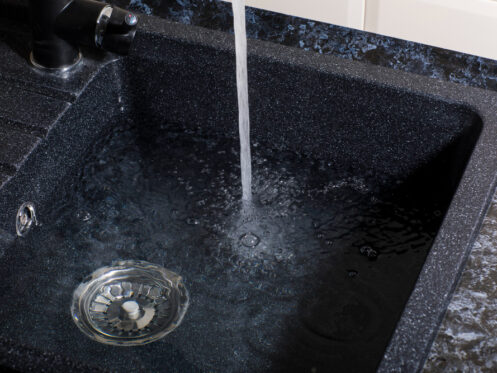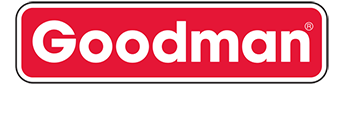Most homeowners don’t spend much time thinking about their plumbing until things go wrong. But if you spend a little more time thinking about and maintaining your drains, you can prevent small problems like clogs and blockages from growing into large issues that cost time and money. For homeowners in Boulder and Denver, Colorado, maintaining clean drains is essential for plumbing efficiency and home safety.
While you might think of clogged drains as a minor inconvenience, they can quickly snowball into bigger problems—repeated slow drainage, unpleasant odors, health risks, and more. Whether you’re dealing with slow draining sinks or preventing future problems, this blog covers everything you need to know about keeping your drains in top form.
We’ll share why drain cleaning is essential, what to do (and avoid), and how professional help can make all the difference. Let’s dive in!
Why Do You Need to Keep Your Drains Clean?
Clean drains are where a healthy and fully functioning plumbing system start. Ignoring regular cleaning can lead to disastrous consequences. Here’s a closer look at what causes clogged drains and why addressing them is so important.
What Causes Drains to Clog?
Understanding the root causes of clogged drains can help you take preventative action. Common culprits include:
- Food Waste – Cooking oils, coffee grounds, and food scraps can build up in your kitchen sink over time, leading to stubborn blockages.
- Hair and Soap Scum – Hair clumps and soap residue are frequent offenders in bathroom plumbing. Together, they can create a sticky mess that slows or stops water flow and causes more buildup.
- Grease and Oil – Pouring grease down the drain might feel harmless at first, but as it cools, it solidifies and forms thick coatings inside your pipes, particularly in the elbows and bends.
- Foreign Objects – From small toys to “flushable” wipes, foreign items can easily block your drainage system if mistakenly sent into your pipes.
- Tree Roots – Outside your home, tree roots can invade your water and sewer lines in search of water, causing cracks, blockages, and costly damage.
What Happens If You Ignore a Drain Clog?
It’s tempting to overlook drain problems when they start small, but neglecting them can lead to serious consequences, such as:
- Slow Drainage – Without cleaning, blockages worsen over time, reducing water flow. What could’ve been fixed with minor attention turns into a frustrating daily issue.
- Unpleasant Odors – Decaying food particles or waste stuck in your pipes produce foul smells that can spread through your home.
- Health Risks – Dirty drains filled with grime and bacteria can invite pests or pose a risk to family health by contaminating the air you breathe.
- Pipe Damage – Repeated pressure from clogged pipes can lead to cracks, leaks, and even burst pipes, which are costly to repair.
- Flooding Risks – Overflowing sinks or toilets caused by blockages can result in water damage that’s difficult and expensive to reverse.
The cost of ignoring clogged drains extends beyond your wallet. It affects your comfort, safety, and overall quality of living.
What You Can Do for Your Drains
The good news? A little preventative care goes a long way. Here are some simple yet effective tips for maintaining clean drains at home.
1. Use Drain Screens
Install drain screens in your sinks, bathtubs, and showers to catch hair, food particles, and other debris before they enter the plumbing system.
2. Watch What You Put Down the Drain
Avoid disposing of substances like grease, coffee grounds, and fibrous vegetables like celery or potato peels in your sinks. These substances are prone to building up in the elbows and bends of your pipes. Instead, use your compost bin or trashcan.
3. Clean Drains with Natural Solutions
Create a simple DIY solution using 1 cup of vinegar and 1 cup of baking soda. The fizzing action works wonders for breaking down minor clogs and cleaning your pipes naturally. You can also use an enzyme-based drain cleaner.
4. Schedule Regular Maintenance
Even if everything seems to be running smoothly, it’s a smart idea to schedule regular drain inspections to catch small problems before they escalate.
What You Should NOT Do to Your Drains
To keep your drains in top shape, here are some common mistakes you’ll want to avoid when it comes to your plumbing:
1. No Chemical Drain Cleaners
Commercial drain cleaners might seem like an easy fix, but these harsh chemicals are corrosive and can damage your pipes over time. Enzyme-based drain cleaners are an easy, healthier, and safer alternative that won’t damage your pipes.
2. Don’t Ignore Build-Up
It’s easy to overlook slow drainage or weird pipe noises—but these are early warning signs of bigger problems brewing, including stubborn clogs, intruding tree roots, and pipe damage.
3. Use Caution with Boiling Water
Pouring boiling water down your pipes can weaken the seals and materials, increasing the likelihood of cracks or leaks (especially in older plumbing or PVC pipes). So—tempting as it might be after making spaghetti—maybe skip pouring that pot of boiling water down the drain. Your pipes will thank you!
4. Never Use Your Plumbing as a Trashcan
Your garbage disposal can handle a lot, but some items can cause serious issues. Grease, starchy vegetables, and dense foods can clog drains and damage the disposal. Flushing wipes, dental floss, or paper towels can also clog or damage pipes. Stick to toilet paper and natural waste as the only flushable items.
What Professionals Can Do for Your Drains
When it comes to stubborn clogs or deeper maintenance, leave it to the experts. They have the tools and knowledge to tackle and solve the larger issues without causing damage. Here’s how professional plumbers can help keep your drains in top shape:
1. Thorough Inspections
Plumbers can use advanced tools like cameras to inspect your pipes for hidden blockages or damage that you might not spot yourself.
2. Expert Techniques
Professional drain cleaning services employ techniques like pipe jetting (also known as hydro jetting) or drain snaking (also known as augering), which are both effective and safe for your pipes when done by a professional.
3. Emergency Support
Have a clogged drain causing an overflow? Professionals are equipped to provide reliable and effective solutions quickly, minimizing damage and repair costs.
4. Longer Lasting Results
With their tools and expertise, professionals don’t just clear blockages; they also help prevent them from returning as quickly. They can also help you understand what caused the issues so you can take steps to better care for your home.
At Precision Plumbing, Heating, Cooling & Electric, we’ve been helping homeowners in Boulder and Denver maintain their drain systems for years. With cutting-edge equipment and top-notch expertise, we deliver results you can count on.
Protect Your Plumbing with Precision Plumbing
When it comes to keeping your drains clean, a little work today saves you from major headaches tomorrow. From preventative practices to professional cleaning, taking care of your plumbing should be a top priority.
If you suspect a clogged drain, don’t wait until it becomes a costly repair. Let Precision Plumbing take care of it! Schedule your service today, and we’ll keep your home’s plumbing running smoothly and efficiently.



